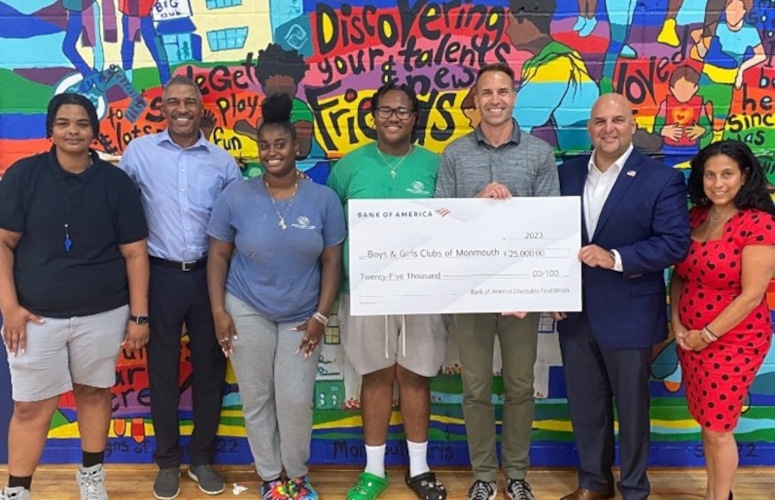
Rutgers Receives $10M to Address Health Disparities
On Dec 14, 2021Rutgers is launching a new initiative to improve the health and quality of life in economically disadvantaged communities dealing with food insecurity, high unemployment, low high school graduation rates and shrinking household income – funded through a $10 million grant from the Robert Wood Johnson Foundation (RWJF).
The four-year grant, part of a larger presidential and university-wide commitment supporting health equity, will create the Rutgers Equity Alliance for Community Health (REACH), joining community-based organizations with university researchers, teachers and students. Participants will come together to find ways to improve health outcomes by focusing on social determinants of health and working where people are born, live, learn, work, play, worship and age.
“The pandemic definitely exposed the health inequities that researchers have identified time and again. With the help of the foundation’s grant, Rutgers will work closely with our communities to determine what’s needed at home, work and school to make health outcomes and lives better for all residents,” said Rutgers President Jonathan Holloway.
In New Jersey and throughout the country, COVID-19 magnified the health disparities that exist in under-resourced, often minority communities, and became a catalyst for Rutgers to lead the new alliance.
REACH is part of a universitywide effort that brings all campuses and the medical and health professional schools together to address health inequities. Over the last six months, the university has received nearly $20 million from RWJF, the nation’s largest public health philanthropy, for various health equity-driven projects.
“New Jersey is blessed with one of the nation’s finest institutions of higher education in Rutgers,” said Richard Besser, president and CEO of the Robert Wood Johnson Foundation. “Our decades-long relationship with the university is a source of great pride for RWJF, and with this grant, we are delighted to support the university’s efforts to leverage its considerable community-based assets to lower structural barriers to good health and effect a healthier, more equitable future for all New Jerseyans.”
REACH’s focus will be to put research into practice and work alongside community residents and leaders on new approaches to bring about long-lasting systemic change. To achieve health equity, the alliance will work to address structural and systemic racism affecting issues in housing, food insecurity, education and employment.
While community-engaged partnerships with Rutgers already exist in Newark, Camden and New Brunswick, REACH will explore ways to grow these affiliations to enact long-term sustainable solutions.
The new alliance – which will provide community impact grants and research seed grants to Rutgers faculty and staff to partner with local organizations – will focus on education, employment, food access, security, housing, and population health.
“It is increasingly clear that people’s overall health outcomes have less to do with what I do as a physician in my office and more to do with social determinants of health, that is, where they live, work and play,” said Denise Rodgers, a family physician and vice chancellor for Interprofessional Programs at Rutgers Biomedical and Health Sciences. “While research has been done for decades looking at social determinants, with many papers published and books written, there is still a tremendous gap between what we know academically and what is happening in many communities. The goal of REACH is to close that gap.”
This is particularly evident, she said, for Black and Hispanic residents who face systemic obstacles and discriminatory structures that impact their physical and mental health and lifespan.
Rodgers, who is also a professor of family medicine and community health at Rutgers Robert Wood Johnson Medical School, and Enobong (Anna) Branch, senior vice president for equity, will lead the work of the alliance, which will be anchored in the Office of the Executive Vice President of Academic Affairs and supported with an additional $1.8 million in presidential funds.
“This is not just another health research project, one of our university diversity priorities was to define sustainable and substantive community engagement that leverages our educational mission. REACH is a mechanism to do that to partner with communities to solve critical problems collaboratively,” said Branch. “Translating our research with an eye towards impact for the public good. Together with our community partners we can enact systemic change.”
Branch and Rodgers say the goal is to transform how universities engage with community partners to develop policies and interventions that will lead to real change in communities dealing with substandard housing, homelessness, unsafe neighborhoods, under-resourced schools, food insecurity and lack of access to health care.
Rutgers’ long-term goal is to work with under-resourced communities throughout the state, but will start with New Brunswick, Newark and Camden, where the university’s campuses are located. Those involved will identify gaps in understanding the causes and solutions of inequities and address them by developing interventions that will merge research with lived experiences.
“What is important about this new university-wide initiative is that it is not taking place in any one discipline or on any one campus,” said Henry Turner, vice president for academic initiatives at Rutgers. “The university is acknowledging that we need experts not just from the medical schools but also from education, history, sociology, criminal justice, Caribbean and Latino studies, urban planning and many other fields across the university for this community collaboration to work.”
To access more business news, visit NJB News Now.
Related Articles:





